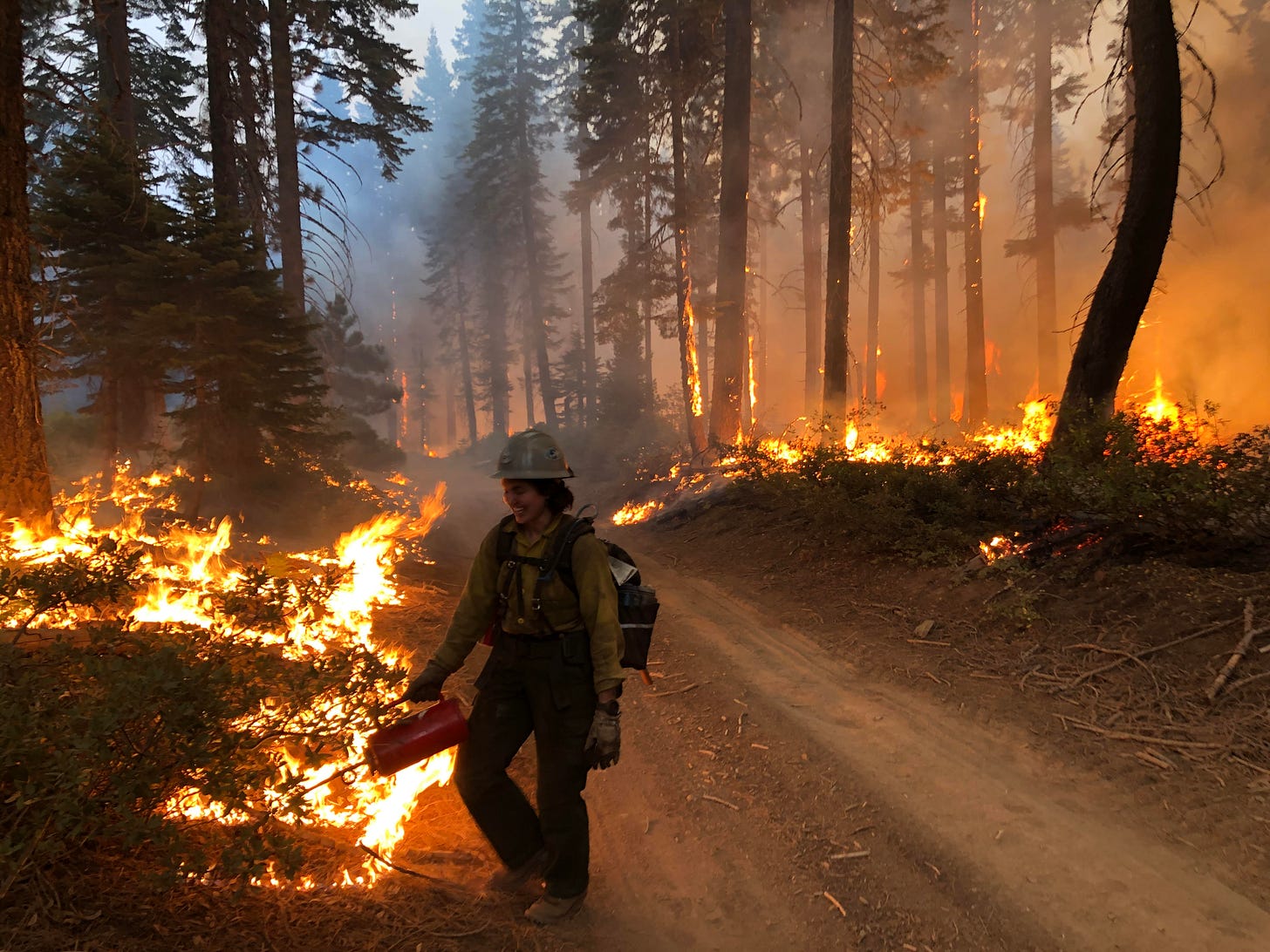"Fire Freed Me to See the World as It Is"
Learning to move past grief in a burning world.
by Kelly Ramsey
Kelly Ramsey is a writer in California and runs the Substack Plant Person.
It’s the end of August, so a place I love is burning. The Smith River Complex, the biggest wildfire in the West, wraps around the community of Gasquet, California. On the map, red tendrils enfold the town, and a wavy line that means fire creeping downhill leans against the H–H–H that shows the hand line intended to stop it. Have the flames crossed over? My heart crawls into my throat, a fat knot. I wait for the world to burn once more.
“Beautiful country burn again,” Robinson Jeffers wrote, of California. “Burn as before, with bitter wonders.”
I’m used to the planet and especially my home state burning, but this one hit me hard.
I’m no stranger to fire. For the past five years, I lived in rural Northwestern California. For a few of those years, I was a wildland firefighter with the U.S. Forest Service, based in Gasquet. The job involves hiking up and down slopes so steep, you’re almost rock climbing. You slide and trip, heart hammering, lungs and legs screaming. You hike a long, hot ways into the forest, and then cut brush and trees with a chainsaw or dig a trench with a hand tool. You set fire on the ground deliberately to pre-burn the landscape in advance of a wildfire. You stand in a fog of smoke, choking, snot running down your face. You sleep on the ground with an aching body. You cough in your sleep. Then you wake before dawn and do it again.
Despite our best efforts, I saw homes burn. I saw a line of tractor-trailers on fire, watched flames shoot through the roof of a house, saw stray cows wandering blackened fields. In 2020, half the town of Happy Camp, where I lived, burned; my friends’ homes turned to piles of twisted metal and charred wood. In 2021, I watched a burning tree land on my coworker—on my friend—striking his head and knocking him flat. I thought he was dead.
***
It’s getting harder to ignore the fires encroaching upon us; one in six Americans lives with significant wildfire risk, and by 2052, it’s projected that almost half the U.S. population will be threatened by fires. One day most of us will have to reckon with this trauma, firefighter or not.
What I can tell you is that it feels like living through a war. Some of the men (yeah, mostly men) I worked with appeared unscathed, though I know they compartmentalized, or buffered with alcohol, because the rates of later-career depression, addiction, and suicide among wildland firefighters are outrageously high and always increasing. For a person like me—sensitive, porous to a fault—the experience was life-altering.
After two seasons in fire, I began to have nightmares of being burned alive, the flames bending over us as we lay huddled in our fire shelters, knowing they wouldn’t protect us. When I remembered my town burning or trees falling on those I loved, I got chills and full-body goosebumps. I developed an inexplicable autoimmune disease. I woke in the night, shirt and sheets drenched in sweat. There was a strange sense of dissociation from the “regular” world—fire was so real, so urgent, that the day-to-day of civilian life looked almost silly. I struggled to explain it to my girlfriends or to the therapist who gently suggested this looked like post-traumatic stress. How could it be PTSD? I didn’t see anyone die.

